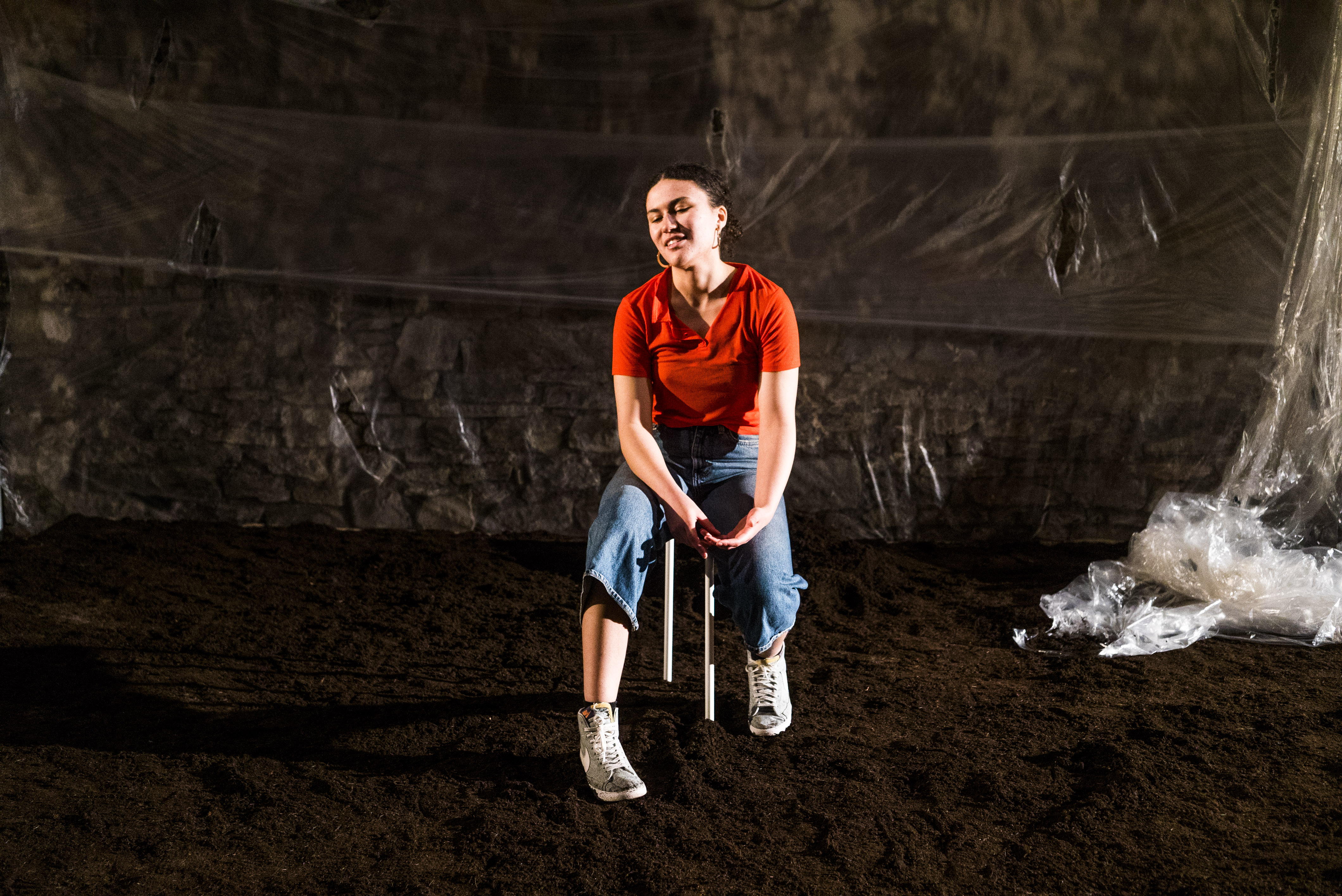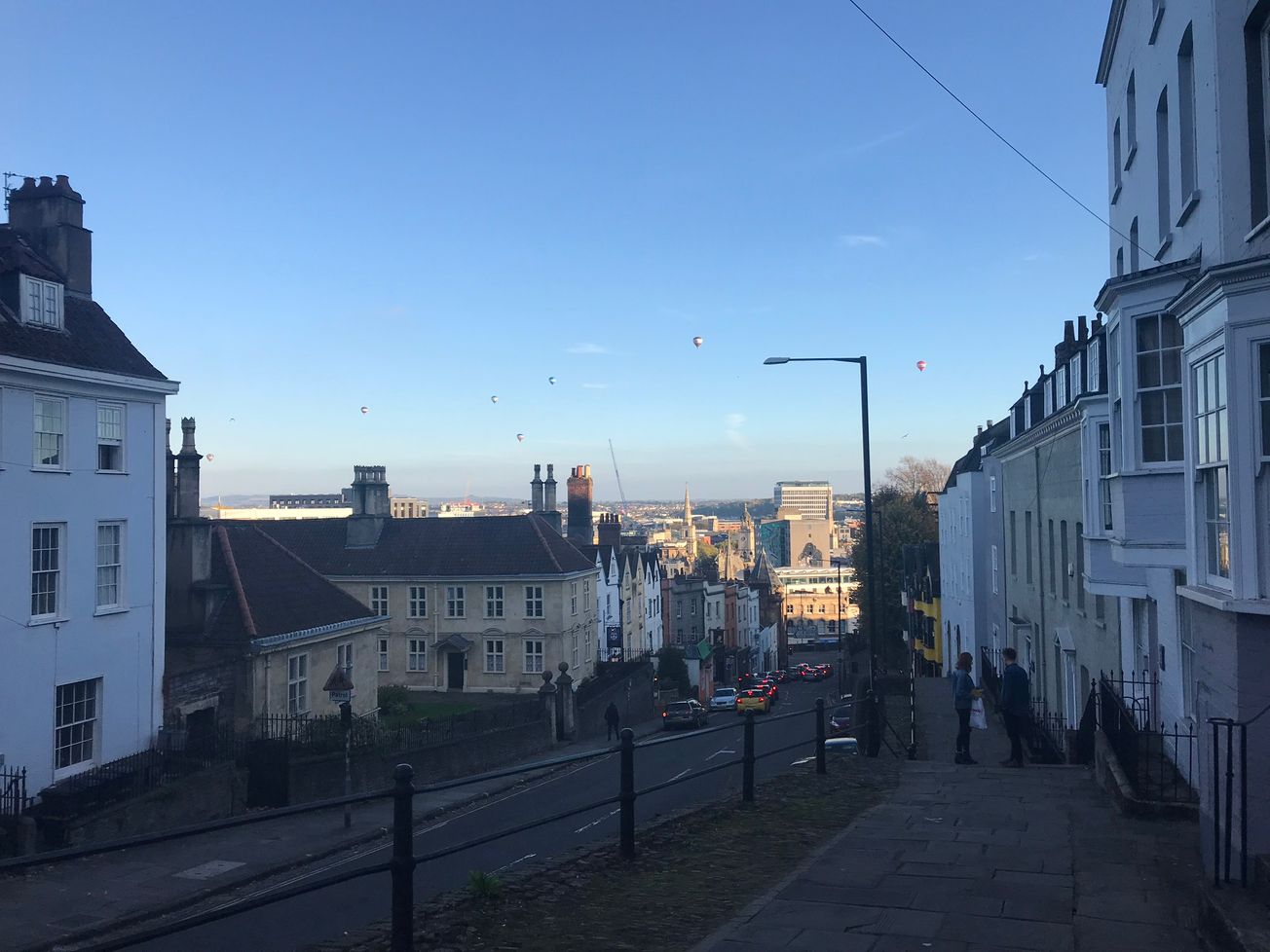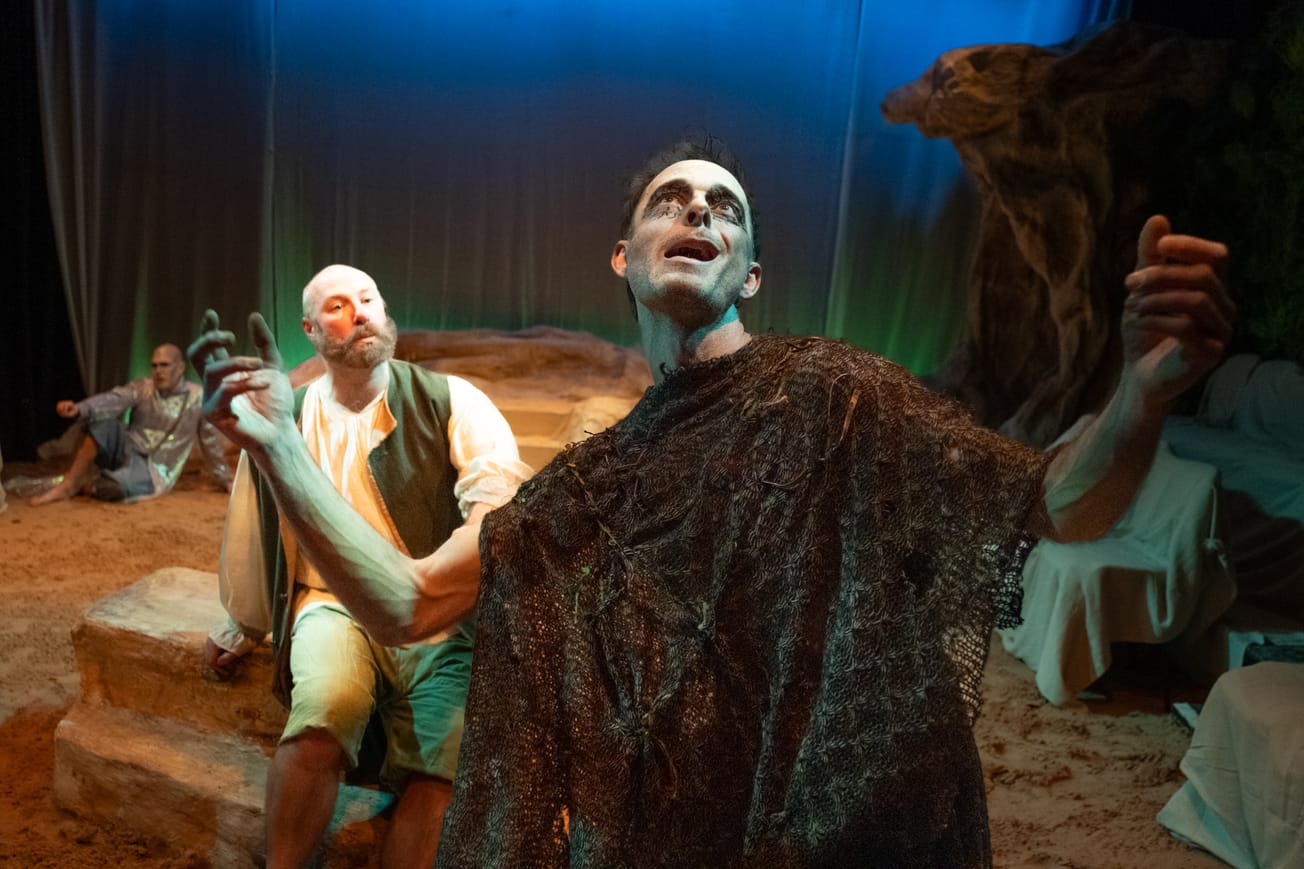By Clodagh Chapman, Third Year Geography
Feeling like a fraud in a 24-hour creative world is something many of us experience... Clodagh Chapman talks impostor syndrome, over-working, and vulnerability.
As one of the wonderful bunch on this year’s Tobacco Factory Writers Scheme, I have been lucky enough to get a year of one-on-one dramaturgical support and feedback from award-winning playwright Mike Akers. Through this, I’ve developed a twenty-minute play, the first iteration of which was selected to be performed at the Tobacco Factory last month. This was supposed to be an article about being on that playwriting course. But, actually, it’s much more important that this is an article about why I have convinced myself that I do not deserve to be on it.

Photograph from BUTTERFLY, for which Clodagh was the narrative director. Photo credit: Butterfly / Harry Plowden
I have sat in many a rehearsal room, surrounded by talented people who respect and support me, and thought 'you have conned your way into this and you should not be here.' In fact, that is the background radiation of virtually all my creative endeavours. The technical term for this is ‘imposter syndrome’: “a psychological pattern in which an individual doubts [their] ... accomplishments and has a persistent internalized fear of being exposed as a ‘fraud’”. Though research on it is lacking, anecdotal evidence suggests that imposter syndrome is endemic in the creative industries, especially amongst women and minorities. Discovering that this wasn’t just me who felt this way was a very bittersweet moment - I was relieved, but also felt a huge sense of loss. How many opportunities to speak up had I not taken because I was convinced that no one wanted to hear me? How many times had I not commented on someone’s success because I took it for given that they knew they were fantastic?
I'm struggling with a bad case of Impostor Syndrome while writing an application for NLA Creative Arts (writing) Fellowship. #suchanobody 😬 pic.twitter.com/cLCfJD76Iu
— Karen Wyld (@1KarenWyld) July 25, 2017
At risk of sounding like every other millennial-bashing thinkpiece, a lot of this probably comes down to social media habits. Networking, building a digital portfolio - these are all critical parts of being a creative - and yet being inundated with a stream of all the stupidly impressive projects everyone I know is working on takes its toll. And having 24/7 access to everyone I am working with at any given moment is efficient, but probably slightly unhealthy; I am no stranger to sending 3am Facebook messages, or answering emails on the way back from a night out. Social media creates the illusion that those around us are creative machines: making, creating, processing, thriving, available for any conversation at any time of day or night.
Though my inability to not be chronically busy predates my access to a smartphone - as the daughter of two migrant parents who are self-admitted workaholics, I have always had a pretty stellar work-ethic - what I’m trying to get at aren’t my own inadequacies, but the culture of the contemporary creative industries. Sometimes the nature of a project necessitates a handful of all-nighters; the issues arise when it becomes comparative ammunition, or when we overwork ourselves to compensate for feeling like an imposter, and inevitably have that imposter syndrome exacerbated by not ‘doing it properly’ and crashing out at 4am.
the number one cure for imposter syndrome is realising that the people around you also experience it.
Maybe I feel this way is because I’m a woman. Theatre is renowned for its lack of gender parity - just look at the National’s virtually all-male upcoming season, or the lead artistic staff of any major arts organisation. And maybe it’s because I don’t have the private education afforded by so many in the theatre bubble, and maybe it’s because I’m gay, and maybe it’s because I was bullied at school, and maybe it’s because I’m not very good at zip-zap-zop. A combination of all those things is probably true, at least as exacerbating factors.
To be clear - I don’t say all this because I’m seeking attention or pity or reassurance. I say all this because, in my experience, the number one cure for imposter syndrome is realising that the people around you also experience it. I will forever remember the day when, back as a theatre-keen-teen, my youth theatre director started a rehearsal process with the words “Hi everyone, I am really nervous”. Seeing that this person who I looked up to, and who had a professional career spanning decades, felt those same nerves made me realise how unfounded imposter syndrome really is.

From BUTTERFLY, Butterfly / Harry Plowden
This knowledge hasn’t stopped me feeling that twinge of “you’re a fraud”. I still sit in rehearsals convinced that any minute now someone is going to pull me up on how unqualified I am to be in that room, and I still have to have a twenty-minute lie-down after blowing my own trumpet on any form of social media outlet. But realising that imposter syndrome is almost part and parcel of being a creative - that feeling this way doesn’t necessarily mean it’s true - has certainly helped bring those moments of panic down to a manageable level.
If there is any sort of take-home message from all this, it is to be open with your colleagues about where you’re at: which means letting them know when they’ve made something great, and sometimes also means making yourself vulnerable and admitting that you’re nervous - if not for your own sanity, for theirs.
(Featured image credits: Epigram / Gabi Spiro)
Have you ever felt Impostor Syndrome? Let us know in the comments below or on social media.









